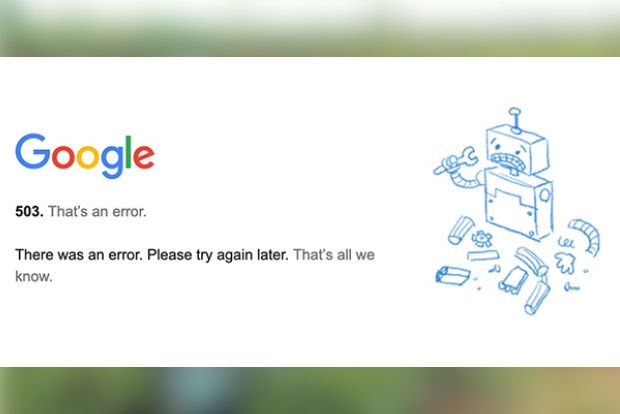Editorial: When a giant sneezes
For all the collective shocks that this year has been piling on us back-to-back, with COVID-19 right on top of the list, nothing could have possibly matched up to the hair-raising moment on manic Monday evening when all services of search engine giant Google went down.;
By : migrator
Update:2020-12-15 01:46 IST

New Delhi
We have to hand it to 2020. If there ever was a year that had proven to be as brutal as it is merciless, it has to be 2020. For all the collective shocks that this year has been piling on us back-to-back, with COVID-19 right on top of the list, nothing could have possibly matched up to the hair-raising moment on manic Monday evening when all services of search engine giant Google went down.
Many who frantically pushed the F5 (refresh) key, had for a few minutes assumed it might be overworked internet connections that had given up on us. Others tried to clean their cache memories in hopes of a fresh start to Gmail. Some went so far as to download alternative browsers, presuming it was one of those Chrome updates. A few feared their accounts had been hacked as they had been locked out of their Gmail accounts and access to Google Drive. For those who were done with work by 5 pm, even logging onto YouTube for some music or comedy seemed to be a no-go. For a couple of hours, we were officially lost in cyberspace.
Observers in the tech and business space viewed the global outage of Google with a ‘told you so’ sense of smugness. And rightfully so, for unofficial figures have pegged the userbase of Google at 4 billion globally. To put that into context, the number of internet users globally is close to 4.39 bn. And Gmail, which is arguably the world’s most popular email service has 1.5 bn active users. And not to forget, there are over 2.5 bn Android-powered devices in the world. And there is a nine out of ten probability that if you’re reading this article, it’s probably on an Android smartphone.
While many netizens blamed the outage on some kind of unscheduled maintenance on part of Google, the more imaginative among them conjured up scenarios of a full-blown co-ordinated cyber-attack, planned and executed by a superpower nation. This was almost reminiscent of the time, Twitter came under a cryptocurrency attack when the accounts of hundreds of public figures were compromised.
If the ongoing US Justice Department’s antitrust lawsuit against Google is any indicator of things to come, Google has a really tough fight on its hands. In October this year, the California-based $1-trillion company was accused of using its market muscle to hobble rivals. Google responded saying people use its search engine and other services out of choice, not because they are compelled to, or do not have any alternatives. A similar battle is being fought with Facebook, which the US Federal Trade Commission has accused of abusing its dominance in the digital marketplace and engaging in anti-competitive behaviour. Across the Atlantic, the European Union has pulled up e-commerce behemoth Amazon for ‘marginalising third-party sellers and capping their ability to grow’.
The internet was imagined as a democratic repository of information that would offer everyone a level playing field to compete in. Back in 1991, a Finnish-American software engineer named Linus Torvalds had created the Linux kernel which became the core of operating systems such as Android, Chrome OS and Linux. And he had given it away for free. It’s not that the world does not rejoice to see a success story - a garage outfit blossoming into a billion-dollar enterprise and adding value to lives of millions of people on the way. However, a point of concern is that there is no inbuilt cap or a morality marker for companies which can inform when enough is enough and whether this kind of rapid, unchecked growth can cause other businesses to go down over a simple glitch. That’s something for the authorities to chew on, while the rest of us proceed to save our files, before the next big outage.
Visit news.dtnext.in to explore our interactive epaper!
Download the DT Next app for more exciting features!
Click here for iOS
Click here for Android

